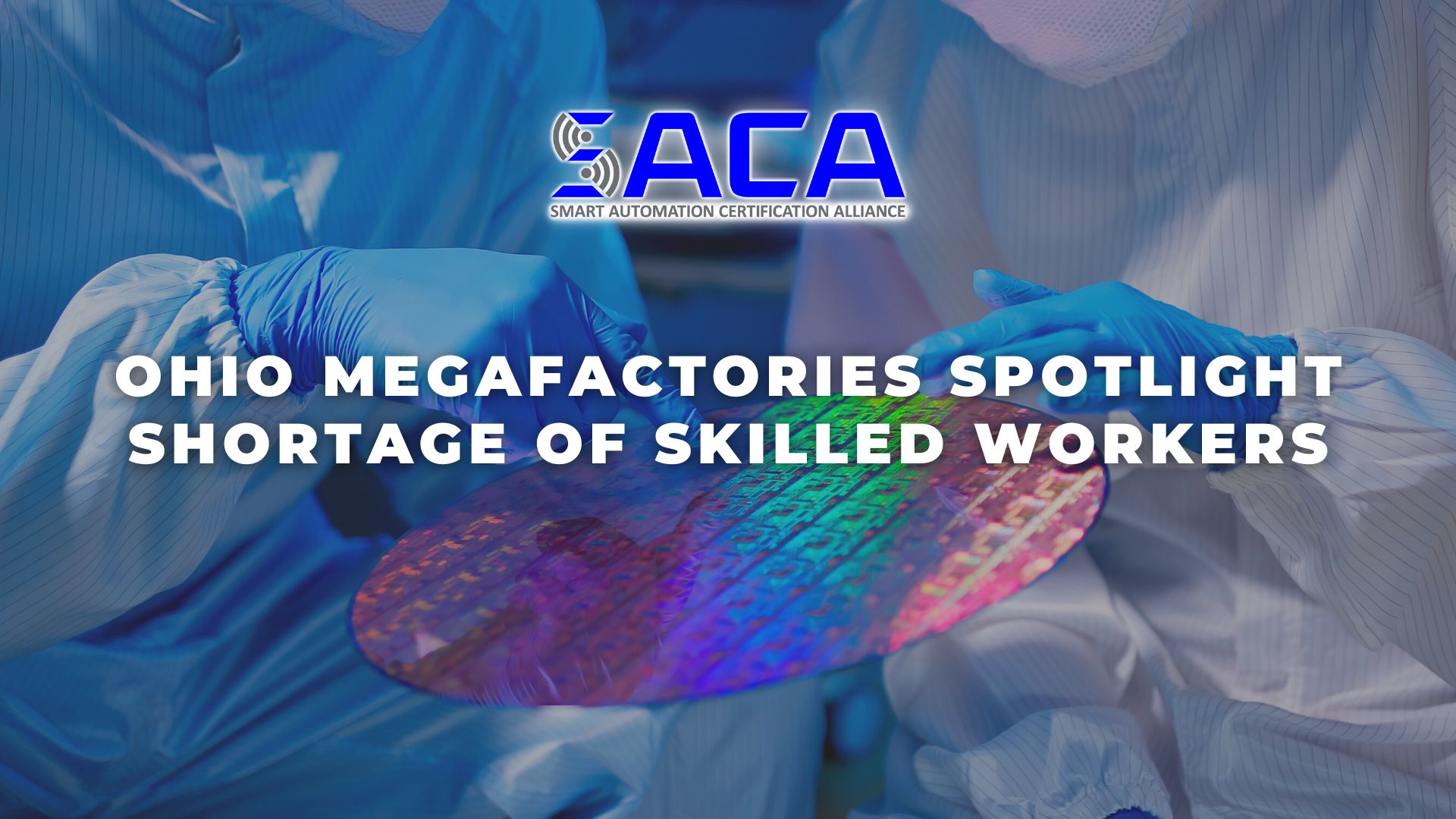
Skilled Labor Shortage in OH as Semiconductor and EV Factories Announced
“If you build it, he will come.” That’s the famous line a farmer hears coming from his Iowa corn field in the movie classic Field of Dreams. Swap Ohio for Iowa and you might hear modern manufacturers saying the same thing, hoping with all their might that “he” will be skilled workers who come to Ohio if they build “it”: modern semiconductor and electric vehicle (EV) manufacturing facilities.
According to a recent Wall Street Journal article by John Keilman, Central Ohio is “where Intel is building two semiconductor plants at a combined cost of more than $20 billion, and Honda and LG Energy Solution are constructing a $3.5 billion electric-vehicle battery plant.” While these announcements have been met with great fanfare, they’ve also caused a good deal of anxiety in Ohio.
Why? There’s great concern about finding enough highly skilled workers to staff these new facilities. According to Keilman, these new plants “aim to hire more than 5,000 workers between them, and local suppliers that will serve the factories likely will need thousands more.”
However, manufacturers already struggle to fill jobs around Columbus, “which has one of Ohio’s lowest unemployment rates and a flourishing logistics industry that competes for the same employees.” In fact, “[t]he region’s plants have thousands of open positions, a shortage that is causing some managers to join their workers on the production line.”
The shortage of skilled manufacturing workers is nothing new. This issue — commonly known as the “skills gap” — has been frustrating manufacturers all across the country for years. Experts believe, though, that “[t]he coming wave of megafactories, aided by billions of dollars in public incentives, could push the shortage into a crisis.”
As Keilman notes, “[t]he U.S. is experiencing a factory-building boom as companies, burned by overstretched supply chains during the pandemic, reshore some of their operations. The Biden administration also has given priority to the nation’s semiconductor and EV industries, calling them matters of national security and setting aside billions of dollars in subsidies to aid their growth.”
But what is being done to increase the supply of skilled workers? According to Keilman, “[t]he Semiconductor Industry Association warns that the building boom could come with a labor shortage. More than half of the roughly 115,000 new positions expected to be created by the end of the decade could go unfilled, the group projects.”
That won’t happen if Intel has its way. Based upon its experiences with facilities in Oregon, New Mexico, and Arizona, “Intel has helped to design a training curriculum that will be offered at Ohio’s community colleges. The program…familiarizes students with semiconductor manufacturing so they can become technicians, an entry-level job that involves maintaining and troubleshooting equipment at the highly automated plants.”
Intel’s plans highlight the need for specialized training for workers in these megafactories that rely upon a wide variety of advanced automation technologies. That’s why “Honda…is talking to community college presidents, public school administrators and workforce development officials to develop pathways to its EV joint venture.”
So what should manufacturers in Ohio and around the country do to find the highly skilled workers they desperately need? How can employers be sure that workers have the hands-on skills they need to succeed in the modern workplace? Today, more and more employers are looking for workers with industry-standard certifications that prove they have the skills needed.
For example, if workers possess a certification from the Smart Automation Certification Alliance (SACA), employers can feel confident they’ve already proven they have the knowledge and hands-on skills needed for working with advanced smart automation technologies. SACA has been hard at work collaborating with industry leaders to develop a wide variety of industry-standard certifications that will help employers find workers who possess the advanced connected-systems skills they need to take their businesses to the next level. Be sure to check out SACA and all it has to offer!





